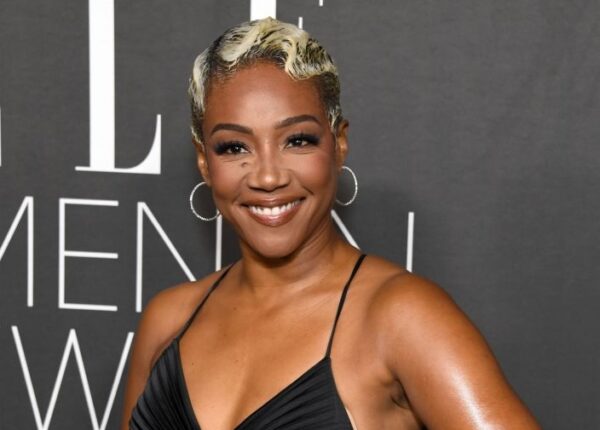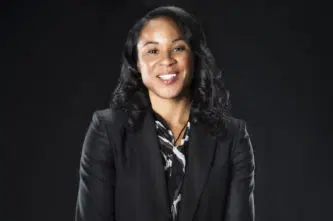Comedian Tiffany Haddish announced she is working to open a grocery store in her hometown South Central Los Angeles neighborhood. Her goal is to support the “households in LA County with incomes less than 300% of the Federal Poverty Level or 516,000 households, experienced food insecurity.” Her passion is rooted in her belief that access to food is a foundational tool that can help chip away at systemic racism.

‘I Want to be a Grocer’
The movie star said last year, “I want to be a grocer.” She incorporated Diaspora Groceries on March 16, 2021.
“I want to grow my community. Grocery stores have thousands and thousands of products in them, right? And when you go to like Home Depot and Michael’s, they teach you how to use their products,” she continued in an interview with Forbes.
“Grocery stores never teach you how to use their products and I guess you’re supposed to already know because you’ve been eating all your life, right? But if you grow up in my community, in a food desert, you’re not necessarily going to know.”
Giving Back to Her Community
A native Los Angelean, her desire to help is rooted in the startling statistic that 34% of all households in Los Angeles County, regardless of income groups, have “experienced food insecurity at some point between April and December.” And since COVID-19, these statistics are becoming scarier.
Dr. Barbara Ferrer, the county’s public health director, said the pandemic “exposed many of the existing flaws in our food system that prevent access to affordable, healthy, and nutritious food.”
“While many Los Angeles County residents experienced food insecurity in the past year, low-income communities and communities of color continue to be disproportionately affected on an ongoing basis,” Ferrer explained. “We must embrace innovative programs and policies to ensure a more equitable, sustainable, and effective food system.”
Financial Literacy and Groceries
Haddish also wants to share the new information she is learning regarding money management and believes creating a grocery store can be a segue into financial literacy.
“I’ve been learning about the history of Black people when it comes to money and the disparities that we have suffered and what we don’t learn about it and do learn about it and what they’ve done with food and all these different things and I’m like Shucks, how can I get the dollar circulating in the black community a little more?” she said.
“How can I be supporting my community in general in the South-Central area, where I live? How can I build it up?” she continued. “And I start seeing them shutting down all these grocery stores and the dollar only circulates in my community for about eight hours. That’s not okay.”
Personal Ties
One of the reasons why Haddish, who currently has an estimated net worth of $6 million, is so passionate about food insecurity is because she remembers what it was like to not have money for food.
In an interview with Essence Magazine, the blockbuster movie star said, “Food insecurity is a real thing for me. Something I’ve experienced for the majority of my existence. I would say the last five years have been more like, ‘this is what I’m going to eat.’”
She continued, talking about how she survived by gleaning from other people’s yards, “When I was homeless, I used to eat off of people’s pomegranate, passion fruit, and orange trees.”
“I’ve noticed within the last 15 years, at least in my hood anyways, all of these fruit trees have disappeared,” she explained. “They cut them all down. There used to be fruit trees all up and down the street. There’s no access. It’s like ‘where’s the fruit?’ Where is the free food?”
Food as Liberation
This is why Haddish supports organizations like The Fruit Tree Planting Foundation and Pico Union Project, two organizations set up to help vulnerable populations in Los Angeles. It is also why she is starting the grocery store so that she can guarantee access to fresh produce in the aforementioned food deserts— using vendors to stock her establishment that looks like the community she wants to serve.
Haddish said, “I want to open up that grocery store so we can use Black farmers, Black vendors. Get that dollar circulating in our community and get back to our roots and looking out for ourselves and in that way slowly eliminate systemic racism.”
“If they can control how we eat and how we live … We got to take control of that,” she believes.





I have been to many parts of south Los Angeles and I saw a lot of green spaces where urban farmers could grow vegetables. We need to use those areas. Many of them are just sitting idle. We need to teach the neighborhoods how to use them. I know for a fact in some states the farmers mowed grass between the freeway and keep the grass from their animals. Please think about it. Aren’t people more important.